Menopause is the natural decline of a woman's reproductive system, which results in the conclusion of the female reproductive cycle.
Menopause usually occurs in a woman's 40s and 50s and is preceded by perimenopause, when a woman's body produces less oestrogen, preparing the body for menopause.
Some women experience only minor menopausal symptoms, whereas others have more severe symptoms, including hot flashes, night sweats, weight gain, irregular periods, poor sleep, reduction in bone density, anxiety and depression.
Although for women, menopause is unavoidable, some supplements can help ease the symptoms of menopause and improve overall health to make living through it much more bearable.
Judging by Google Trends data, women are increasingly looking for more help with menopause, with the number of searches for 'menopause supplements' increasing by 205% in the last four years.
At Discount Supplements, we've pulled together a round-up of the best vitamins and minerals to take to improve your well-being during your menopausal years, including how they help, which foods you can find them in and how much of each you should be taking.
Table of contents:
What are the best vitamins for menopausal symptoms?
Vitamin A
Vitamin B-6
Vitamin B-12
Vitamin D
Vitamin E
What are the best herbal supplements for menopause?
What are the best vitamins for menopausal symptoms?
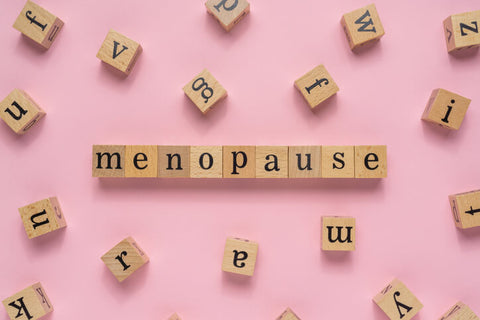
With the onset of menopause, women's oestrogen levels begin to decline, leading to the risk of developing other future conditions, such as osteoporosis, heart disease and urinary incontinence.
The good news is that certain vitamins can be supplemented or boosted through a healthy balanced diet to help minimise the effects of low oestrogen when combined with a good amount of sleep and exercise.
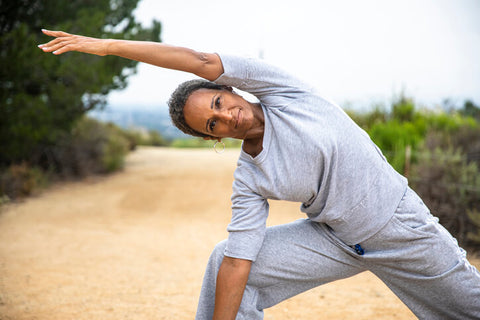
Here are our top vitamin recommendations for dealing with menopause symptoms, which foods they are found in, how they can help and the amount your body needs to function correctly.
Vitamin A
Vitamin A is the collective name for a group of compounds known as retinoids. You can find different types of vitamin A in certain foods.
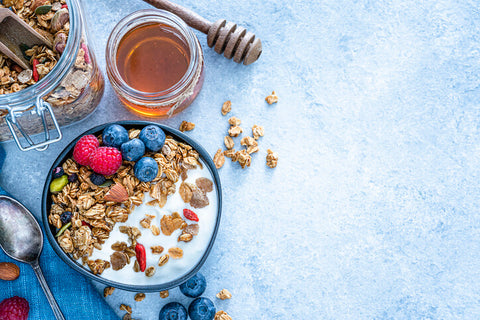
Preformed vitamin A or retinol comes from animal products, fortified foods such as breakfast cereals and vitamin A supplements. The liver stores preformed vitamin A, but too much of it can be toxic, so always take care when supplementing it.
A healthier way to take on vitamin A is from fruit and vegetables rich in beta-carotene, such as orange and yellow fruits and vegetables and leafy greens. The body converts beta-carotene into vitamin A when needed, and you can usually get all the vitamin A you need from eating enough beta-carotene.
Vitamin A is essential for healthy bones and helps fight against the onset of osteoporosis, which low levels of oestrogen can cause during menopause. However, having more than the recommended daily allowance can adversely affect bones, making them vulnerable to fractures in old age. Older women, in particular, need to be aware of this as, through menopause, they are already at an increased risk of developing osteoporosis.
If you take vitamin A supplements, never take more than the recommended daily allowance of 600 micrograms. If you decide to supplement your intake, always search for supplements containing at least 20% vitamin A from beta-carotene.
Vitamin B-6
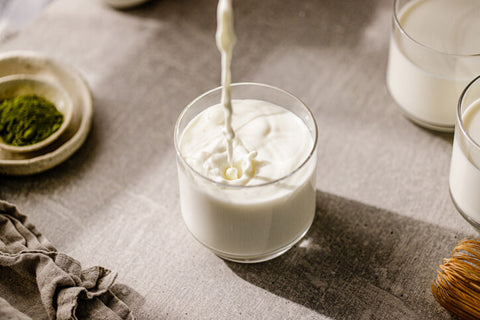
Vitamin B-6 is the vitamin responsible for aiding the production of serotonin, the chemical that transmits brain signals. As women begin to age, their serotonin levels drop, and these fluctuating levels can contribute to emotional side effects such as depression and mood swings.
During and after menopause, supplementing vitamin B-6 can prevent symptoms such as depression and energy loss caused by a dip in serotonin. For women, the recommended daily allowance of vitamin B-6 is 1.3 milligrams for those aged 19-50 and 1.5mg for those over 50.
You should be able to gain enough vitamin B-6 from your daily diet. Still, according to the NHS, it's important to stay within the recommended guidelines to avoid peripheral neuropathy, a numb sensation in the arms and legs, which can be irreversible if too much vitamin B-6 is taken over a prolonged period.
You can find a source of natural vitamin B-6 in pork, turkey, chicken, soya beans, peanuts, fish, oats, bananas and milk.
Vitamin B-12
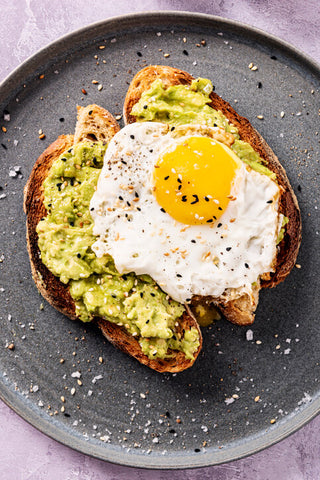
As women age, their bodies lose the ability to absorb vitamin B-12, which is necessary for healthy bones, creating red blood cells, DNA production, and neurological function.
Because women can no longer absorb it, their risk of B-12 deficiency increases. Although these symptoms are vague, they can include weakness and fatigue, loss of feeling in the fingers and toes, confusion, depression and some balance issues. A continued lack of vitamin B-12 can cause anaemia, bringing other health-related issues.
To prevent this from happening, a recommended daily allowance of 2.4 micrograms of vitamin B-12 for women aged 14 and over is recommended either by supplementing or eating healthy, fortified foods. You can also find a healthy source of this red blood cell-making vitamin in eggs, fish, milk and cheese.
Vitamin D

Vitamin D is produced in the body after it is exposed to sunlight. For older women, particularly those housebound, there is always a risk of vitamin D deficiency, which can also occur in the winter months, when daylight hours reduce.
A vitamin D deficiency can increase the chance of bone pain, fractures and osteomalacia, a condition that leads bones to become soft and weak. Since osteoporosis risk increases in menopausal women, it's important to get a healthy daily intake of vitamin D to prevent any of these bone-related issues from occurring.
The recommended daily allowance for vitamin D in women is 15 micrograms for those aged 19 to 50 and 20 micrograms for those over 50, either from supplements or through a healthy diet of fatty fish, beef liver, cheese, egg yolks and fortified food.
Vitamin E

Vitamin E is a real vitamin hero when it comes to helping out the body. Not only does this antioxidant fight off cell-damaging free radicals, but it also reduces inflammation and helps to relieve stress and depression.
Too much stress can cause cell damage and increase the risk of heart disease, depression and weight gain, all common menopause-related symptoms.
To counteract these menopausal symptoms, you should increase your vitamin E intake during and after menopause by supplementing or adding more foods rich in vitamin E to your diet, taking at least 15 milligrams per day.
Vitamin E can be found in most multivitamin supplements, but it's also readily available in almonds, hazelnuts, avocado, broccoli, squash, spinach, shellfish and sunflower seeds.
What are the best herbal supplements for menopause?
Alongside supplementing your diet with vitamins, some minerals and herbal remedies are said to help ease menopausal-related symptoms.
As with all health and well-being supplements, it's advisable to talk to a healthcare professional before adding any to your diet.
Here are some of our top recommendations:
Black Cohosh is made from the root of the North American Cohosh plant and has long been linked with menopause for its ability to ease the symptoms of hot flashes. However, it's not recommended for those that suffer from liver problems, so if in doubt, always consult your doctor before taking it.
Closely linked with improving mood swings, St John's Wort has been used in traditional herbal medicines since Ancient Greek times. Although promoted for its ability to alleviate depression and anxiety, it has also been known to interact with pharmaceutical medicines, so it's important to seek medical advice before taking it.
Loss of bone density can be a serious problem after menopause, so women must get enough calcium in their diets to counteract this problem. For women under 50, 1000 milligrams of calcium is recommended per day; this number jumps to 1200 for those over 50. You can easily supplement calcium, but it can also be found in dairy products, green leafy vegetables and fish where the bones are also eaten, such as sardines and pilchards.
The best vitamins for menopause: The highlights
Menopause and declining oestrogen levels can massively impact a woman's body and lead to other health-related problems such as osteoporosis and heart disease.
Whilst women go through menopause, they can experience uncomfortable side effects such as hot flashes, weight gain, poor sleep and depression.
The most effective way to combat these symptoms is through a healthy balanced diet, exercise and the right amount of sleep. However, it's important to ensure you're getting the correct amounts of Vitamins A, B-6, B-12, D and E to help the body function properly to alleviate menopause-related symptoms, either through diet or supplements.
If you choose to take supplements, always ensure not to exceed the recommended daily guidelines of each vitamin or mineral before taking and always consult a healthcare professional, whether you take vitamins or a herbal remedy.
Shop vitamin and mineral supplements at Discount Supplements
For all the essential vitamins you need to care for your body during menopause, browse our full range at Discount Supplements today or by shopping the specific links above. Then, why not explore our complete well-being collection, and contact us should you require any advice before purchasing.
Related posts:
- These Are The Vitamins And Minerals Needed For A Good Night's Sleep
- The Top 5 Vitamins To Take For Healthy Skin
- The Best 5 Supplements When You’re On A Budget

